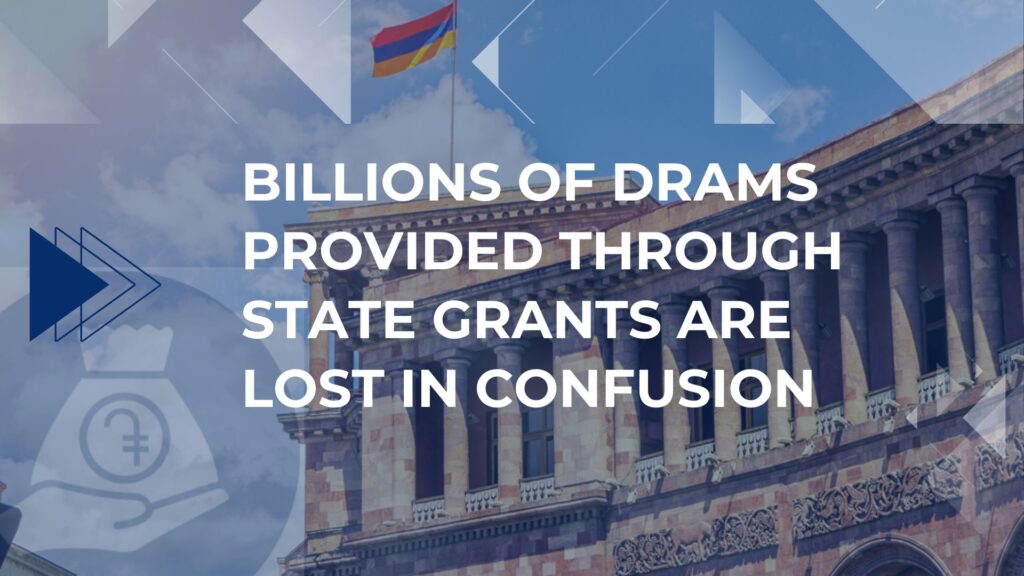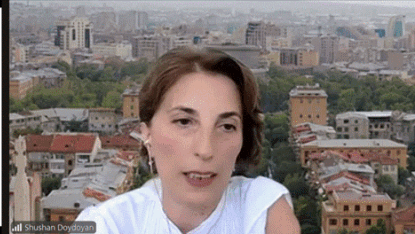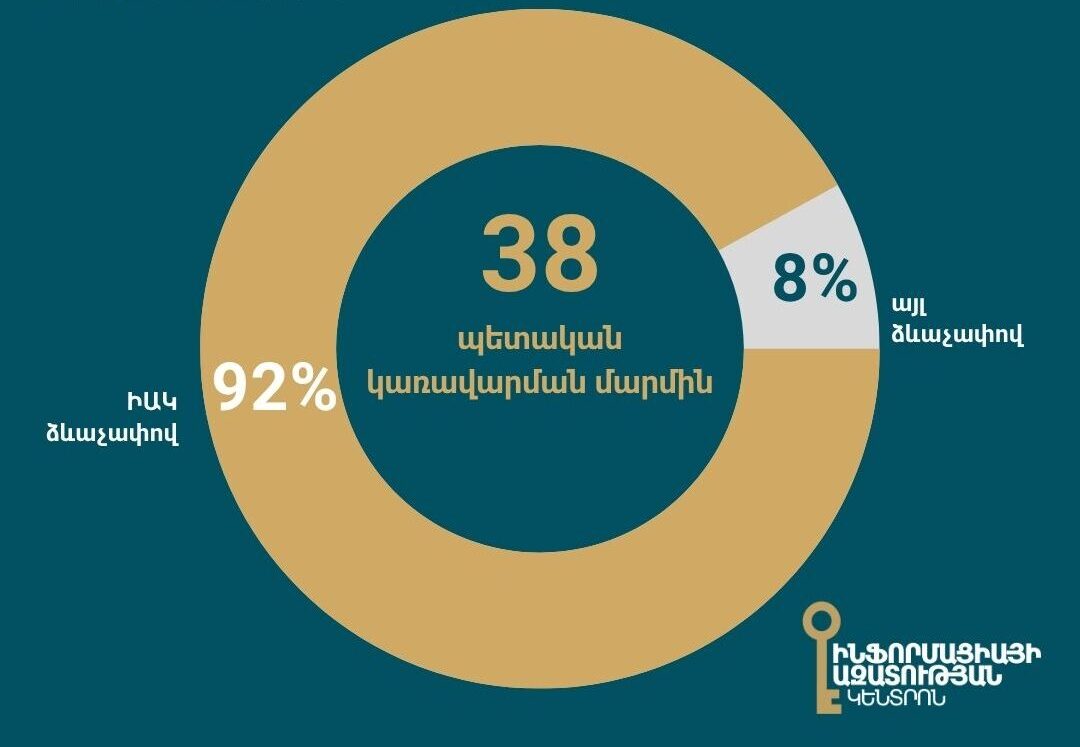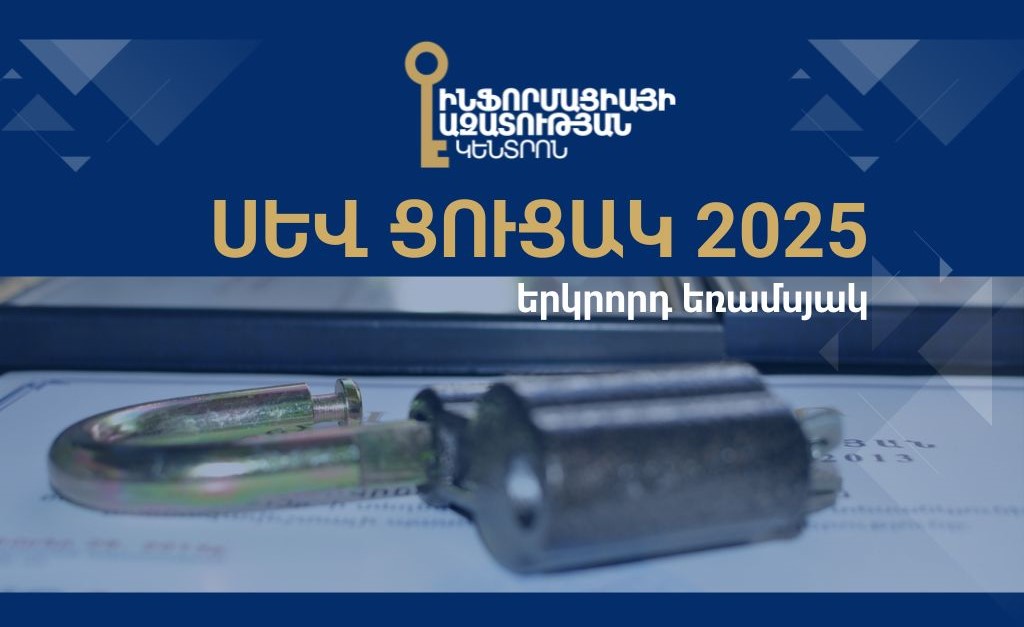To ensure transparency and obtain complete information regarding state budget grants and subsidies, the Freedom of Information Center sent an information request on January 29, 2025, to the Office of the Prime Minister of Armenia and 12 ministries, requesting the following information:
- Which organizations and individuals received grants and/or subsidies in 2024? Please provide a full list of all grant recipients, including individuals and organizations.
- What was the purpose, duration, and allocated amount of each grant/subsidy provided in 2024?
- Where were the grant announcements and competition invitations published? Please provide links to the platforms where they were made public, if available.
- For each competition: the date, number of participants, copies of the selection committee’s decisions, and links to their official publications.
Although all 13 government agencies that received the information request have provided responses, the data they provided is largely incomplete and, in some cases, contradictory. It is evident that state agencies lack a unified approach to responding to information requests, and different institutions interpret grants in varying ways.
The issue is that, although grants from the state budget are intended to be provided through a competitive process (RA Government Decision No. 1937-N of December 24, 2003), the executive branch has also established exceptions. In these cases, grants can be awarded without competition to pre-approved legal entities, mainly state non-profit organizations (Government Decision No. 2323-N of December 28, 2023, Annex N 5, paragraphs 7 and 7.1). According to the list defined by this decision, allocations from the state budget are made without competition, while contracts are still formalized under the grant competition framework. Simply put, grants are provided from the state budget to pre-designated organizations for pre-approved programs or activities. Since these allocations do not go through a competitive process, some government agencies—judging by their responses—did not classify them as grants and therefore did not provide information about them.
Simply put, grants are provided from the state budget to pre-designated organizations for pre-approved programs or activities. Since these allocations do not go through a competitive process, some government agencies—judging by their responses—did not classify them as grants and, therefore, did not provide information about them.
Institutions that Provided Complete Responses
It should be noted that out of the 13 state agencies that received the request, only the Ministry of Defense and the Ministry of Finance provided complete responses. The latter stated that it had not allocated any grants or subsidies, which we consider a complete response, as it aligns with the findings of our research on the online procurement platform.
The Ministry of Defense provided FOICA with complete information. In a separately compiled data table, it presented the name of the organization that received funding through the grant procedure, the duration, purpose, allocated amount, and legal basis, from which it becomes clear that all these allocations were made without a competitive process.
An attachment to the response reveals that in 2024, the ministry allocated approximately 733 million AMD (733,404,300 AMD) in subsidies to a single organization—Monte Melkonian Military Sports College.
Last year, the Ministry of Defense allocated a total of 728 million AMD (728,409,200 AMD) in grants to three organizations:
- “Center for Humanitarian Demining and Expertise” SNCO – 457,102,500 AMD
- “Yerkrapah Volunteer Union” NGO – 234,638,000 AMD
- Military-Technical Research Center SNCO – 36,669,000 AMD
With some reservations, the Ministry of Economy, the Ministry of Labor and Social Affairs, and the Ministry of High-Tech Industry also provided relatively complete responses.
The Ministry of Economy provided only the list of grants allocated within the framework of the “Support for Tourism Development” program implemented by the Tourism Committee through a competitive process. Based on announced competitions, 32 grants were awarded, totaling approximately 1,073,730,000 AMD. The list of grant recipients includes 19 private companies, 4 foundations, 8 public organizations, and 1 state non-commercial organization.
The largest grant was provided to Yerevan Perspectives International Music Festival NGO for supporting the organization of the MICE (Meetings, Incentives, Conferences, Exhibitions) event, amounting to 166,600,000 AMD. Additionally, for organizing an international event, Luxury Voyage LLC received a 151,000,000 AMD grant.
The Ministry of Economy did not provide written information regarding the competition dates or the number of participants. However, it should be noted that, using a specific competition as an example, the ministry did indicate in writing where the relevant records are published, allowing the requested information to be collected from those sources.
The Ministry of Labor and Social Affairs emphasized in its official response that the provided list pertains exclusively to grants awarded through a competitive process. The ministry supplied a complete list of recipient organizations, categorized by their respective fields and allocated amounts, along with active links to competition announcements and records.
According to the ministry’s official response, in 2024, a total of 120 grants were awarded through competitions, amounting to 1,454,708,854 AMD (approximately 1.4 billion AMD). These grants were distributed among various organizations, including more than 20 non-governmental organizations (NGOs).
In 2024, the largest grants were provided for services related to home care for the elderly and persons with disabilities and daycare services for children. The top recipients of grants from the ministry were:
- “Mission Armenia” Charitable NGO – 368,903,334 AMD (approximately 1 million USD).
- “Armenian Caritas” Charitable NGO – 95,470,738 AMD.
- “Hans Christian Kofoed” Charitable Foundation – 70,748,784 AMD for providing shelter to homeless individuals.
The Ministry of High-Tech Industry reported that while no subsidies were provided in 2024, 64 organizations received grants totaling 884,595,843 AMD.
- The largest grant, amounting to 333,079,123 AMD, was awarded to Plug and Play Germany GmbH, which implemented a 26-week acceleration program in collaboration with the ministry for Armenian startups in the sector.
- The second-largest initiative was “From Idea to Business”, which distributed 214,094,720 AMD in 27 grants to 27 companies over two program phases. These grants were intended to support startups and existing businesses in the high-tech sector, helping them create new value and apply technology to solve challenges.
- Most of the grants were provided to business entities, with only one NGO on the list: “OGNI” Social Educational NGO, which received 10 million AMD within the “Neruzh 4.0” program aimed at supporting tech startups from the Armenian diaspora.
The ministry clearly stated in its official response that no subsidies were provided, and detailed information on grant competitions was included in a separate annex.
Institutions that Provided Incomplete and Contradictory Responses
The responses from the remaining seven ministries and the Prime Minister’s Office were incomplete. It is important to note that the majority of these responses were so incomplete and contradictory that the Freedom of Information Center had to conduct additional research using the Public Procurement electronic system to review the list of contracts published under the grant procedure. This revealed that a significant portion of the official responses did not align with the data available in the contracts concluded under the grant tender procedure in this system.
The Prime Minister’s Office and the Ministry of Health did not provide the requested information but merely referred to the legal basis—Government Decision No. 2323-N of December 28, 2023. However, this decision is a general act regarding the implementation of state budget expenditures, whereas the FOICA’s request specifically concerned the grants and subsidies actually allocated, not just their legal basis.
Moreover, their reference to the Public Procurement website was also inappropriate, as the website contains information on concluded contracts, which the FOICA did not request for. Extracting the relevant information from the contracts available on the platform requires specific expertise and skills, which every individual is not obligated to possess.
The response from the Ministry of Territorial Administration and Infrastructure, while containing understandable and complete data on both subsidies and grants provided through a tender and without a tender, was still incomplete, as it did not provide a full list of beneficiaries who received subsidies, nor did it include data on grant tender announcements, execution protocols, and participants. According to the Ministry’s response, within the framework of the “State Support Program for Energy-Efficient Renovation of Apartments and Individual Residential Buildings” in 2024, the Ministry allocated approximately 3.3 billion drams in subsidies from the state budget to 23,254 beneficiaries. During this period, the Ministry also provided subsidies to two organizations totaling 643 million 305 thousand 900 AMD: “Radioactive Waste Neutralization” CJSC received 40.26 million AMD for waste neutralization services, and “South Caucasus Railway” CJSC received 332.63 million AMD for losses incurred from passenger transportation.
The Ministry of Territorial Administration and Infrastructure has allocated a total of approximately 1.3 billion (1,345,988,400) AMD in grants to state and municipal non-profit organizations. Among the organizations receiving grants, four NGOs received grants totaling around 2.5 million AMD each through a tender in the public services regulation sector for consumer rights protection. These organizations are:
- “Housing and Communal Sector Workers Union” NGO – 2,599,350 AMD
- “Consumer Consulting Center” NGO – 2,599,350 AMD
- “Consumer Support Center” NGO – 2,599,350 AMD
- “Consumers Association” NGO – 2,483,350 AMD
However, the ministry did not provide the requested information regarding the conduct of these tenders.
According to the official responses, five ministries did not provide grants and/or subsidies in 2024: the Ministry of Justice, Ministry of Foreign Affairs, Ministry of Environment, Ministry of Internal Affairs, and Ministry of Finance. However, our investigation revealed a different picture.
The Ministry of Internal Affairs, in its response letter, emphasized that it has not provided subsidies or grants to individuals and organizations through a competitive process. According to the Ministry of Internal Affairs, grants have been provided to organizations under its jurisdiction (state institutions, municipal organizations, and private companies) in accordance with Annex 7 of the Government Decision No. 2323-N of December 28, 2023.
Through our investigation, we found that, according to the mentioned annex, the Ministry of Internal Affairs was allocated 4 billion 488 million 87 thousand 900 AMD in grants for the 2024 fiscal year. However, no information regarding grants or contracts concluded under the grant procedure is available in the Public Procurement electronic system for the period between January 1 and December 31, 2024.
It remains unclear whether the Ministry has saved the budgeted grant funds, which is not supported by the Ministry’s official response since they stated that grants were allocated according to the annex, or if the relevant contracts have simply not been posted on the electronic platform.
Our analysis of the online procurement platform also revealed that the Ministries of Foreign Affairs, Justice, and the Environment provided grants to various state entities through a competitive process. However, they did not provide this information to the Freedom of Information Center, presumably because these grants were allocated without a competitive process, in accordance with Government Decision No. 2323-N of December 28, 2023.
The Ministry of Education, Science, Culture, and Sports provided data only on grants distributed through a competitive process, but even this information was incomplete and improperly organized. In their response letter, the ministry provided active links to contracts concluded under the grant procedure, again referring to the public procurement electronic system.
It must be emphasized once again that the Freedom of Information Center did not request the contracts but rather sought information about the grants and subsidies—specifically, a complete list of these.
Firstly, there is no information on subsidies in the response. It only mentions that grants were provided in four areas—education, culture, sports, and youth—along with active links to more than 400 announcements.
The grant competitions, contracts, and related agreements are published separately on the website, making the collection and analysis of summarized data a time-consuming task requiring additional expertise and effort. Moreover, the Freedom of Information Center had requested not the contracts for grant competitions, but a comprehensive list of the grants, including the name of each beneficiary organization, the purpose, duration, and amount of the grant, as was provided by the Ministry of Defense.
Summary of Responses in Accordance with FOI Legislation and Principles
This research revealed significant issues in the allocation process of state budget grants, as transparency and accountability are not ensured, nor is public participation in decision-making.
Summarizing the results of the responses received from the Prime Minister’s Office and 12 ministries regarding state budget subsidies and grants, we conclude that:
- State bodies do not have a unified approach to processing, classifying, and providing information.
– Different bodies interpret state budget grants differently; if they are not provided through a competitive process, many do not classify them as grants.
Except for the Ministries of Finance, Defense, and Territorial Administration and Infrastructure, the remaining nine ministries adopted this approach and did not provide complete information on state budget grants.
– Some agencies provided links to contracts or legal acts instead of the requested detailed list, including the Prime Minister’s Office and the Ministries of Health and Internal Affairs. - It was not possible to obtain complete and reliable information on state grants and subsidies through an information request.
- The provided information is not easily accessible. For example, the attachments from the Prime Minister’s Office and the Ministries of Defense and Economy were in an inconvenient PDF format, without the ability to copy text. Only the Ministries of High-Tech Industry and Territorial Administration and Infrastructure provided attachments in Excel format, which should be considered a best practice, as this format allows for more efficient data processing.
- The active links provided were not appropriate, as they did not contain the requested specific information—for instance, the response from the Ministry of Education, Science, Culture, and Sports.
- The response deadlines were generally met: The Ministries of Finance, Justice, and Health responded one day after receiving the request. The Prime Minister’s Office and the Ministries of Internal Affairs and Defense informed within 5-6 working days that additional work was needed and provided the requested information within 12, 15, and 20 days, respectively. The responses from the remaining ministries were received within the time limits set by the FOI law, typically within 5-6 working days.
In upcoming publications, the Freedom of Information Center will present information on the grant contracts signed through competitive processes by each of these agencies in 2024, based on data from the Public Procurement Electronic System.










